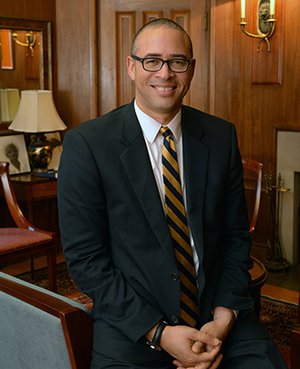
Jonathan Scott Holloway
Dean of Yale College, Yale University
Jonathan Holloway is Dean of Yale College and Edmund S. Morgan Professor of African American Studies, History, and American Studies. He will soon become the next provost of Northwestern University. He specializes in post-emancipation United States history with a focus on social and intellectual history. He is the author of Confronting the Veil: Abram Harris Jr., E. Franklin Frazier, and Ralph Bunche, 1919-1941 (2002) and Jim Crow Wisdom: Memory and Identity in Black America Since 1940 (2013), both with the University of North Carolina Press. He edited Ralph Bunche’s A Brief and Tentative Analysis of Negro Leadership (NYU Press, 2005) and co-edited Black Scholars on the Line: Race, Social Science, and American Thought in the 20th Century (Notre Dame University Press, 2007). He has written an introduction for a new edition of W.E.B. Du Bois’s Souls of Black Folk, published by Yale University Press in 2015.
Holloway won the William Clyde DeVane Award for Distinguished Scholarship and Teaching in Yale College in 2009 and the Before Columbia Foundation’s American Book Award in 2014. He served as the master of Calhoun College from 2005-2014, and was Chair of the Council of Masters from 2009-2013. He began a three-year term as Chair of the Department of African American Studies in 2013. That term was abbreviated when he was named Dean of Yale College beginning in July 2014.
He has held fellowships from the W.E.B. Du Bois Research Institute at Harvard University, the Stanford Humanities Center, and the Ford Foundation. He was an Alphonse Fletcher Sr. Fellow in 2011-2012. Currently, he is a Distinguished Lecturer for the Organization of American Historians.
Events
4:00 p.m. - Warner Bros. Theater
The History Film Forum is proud to present the premiere of An Outrage, a documentary film about lynching in the American South. Filmed on-location at lynching sites in six states and bolstered by the memories and perspectives of descendants, community activists, and scholars, this unusual historical documentary seeks to educate even as it serves as a hub for action to remember and reflect upon a long-hidden past.



